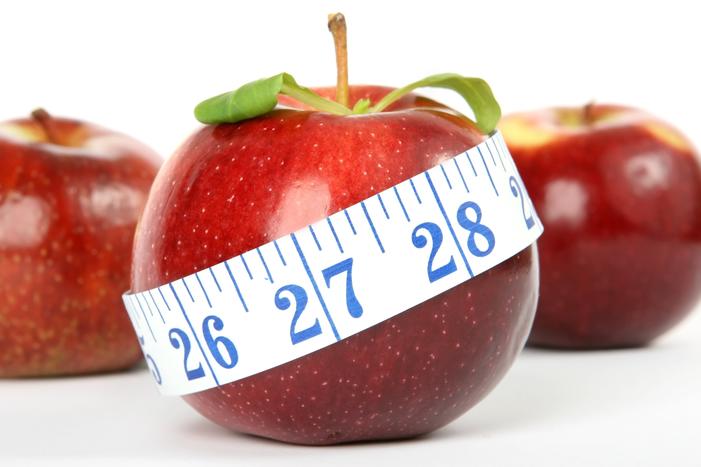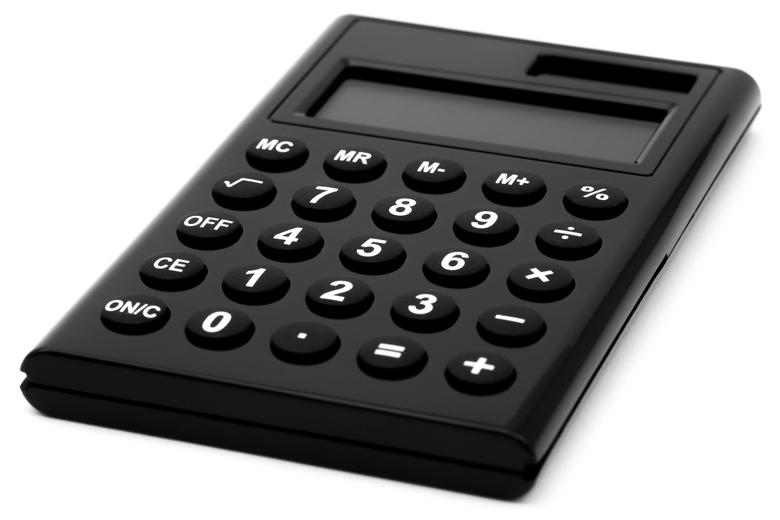 Calories are the unit of measurement that determines the amount of energy the food we eat provides. You'll find the number printed on food packaging as Kcal, often next to a similar unit of energy called kilojoule (kJ).
Calories are the unit of measurement that determines the amount of energy the food we eat provides. You'll find the number printed on food packaging as Kcal, often next to a similar unit of energy called kilojoule (kJ).
A simple analogy to understanding calories is to imagine the body as a car. Calories are the fuel which keeps the body moving. Even at rest, the body continues to burn calories to keep the blood circulating throughout the body and maintain a stable temperature. When you exert yourself, equivalent to pressing down the accelerator, the body uses up the energy faster.
If you regularly exert yourself, you will need to consume more calories to ensure your body has enough energy to power you through your workout. Similarly, if you do not exercise as much, you should consume fewer calories.
How many calories should I be consuming in a day?
According to Public Health England, men should consume 2,500 calories, while women should consume 2,000 calories per day.
"20% of daily energy and nutrients should come from breakfast and 30% from both lunch and dinner. All other snacks and drink consumed between meals should make up the difference." ~ Public Health England
While this is a good guideline to follow for most people, these numbers are contested because they do not account for a person's energy expenditure. The rate at which a person uses up or "burns" calories differs from person to person, depending on their metabolism.
Metabolism is the speed at which your body can process chemicals in your body to keep it alive. For example, a person with a higher, more active metabolism may need to intake more calories than someone with a slower metabolism. As you age, your metabolism typically slows down.
By combining the rate of your metabolism with the recommended daily intake of calories, you can fairly accurately determine the amount of calories your body needs to stay alive - this is referred to as your basal metabolic rate (BMR).
What is Basal Metabolic rate (BMR)?
Basal metabolic rate is the speed at which your body consumes energy at rest. So, if you were lying in your bed all day, your BMR is the amount of calories your body would need to maintain its normal function. These calories are used to keep the heart beating and remain at a constant ideal temperature through homeostasis.
Your basal metabolic rate is not the amount of calories you should consume daily. However, you will need to know your BMR to calculate your daily calorie intake.
How can I determine my basal metabolic rate (BMR)?
Note: The following information is not medical advice. The equations below determine a close approximation of the amount of calories a person should consume based on their age, height, weight and activity level. We encourage you to consult your GP or a qualified dietician for further advice on your daily calorie intake.
To work out your BMR and recommended daily intake of calories, you will need:
- A tape measure (cm)
- Scales (kg)
- A calculator
The following equations are based on the Schofield Equation. They have been simplified.
For men:
| Age | Equation (kcal per day) | SEE (standard error of estimation) |
|---|---|---|
| 18 - 29 | 15.057 x Weight (Kg) + 692.2 = BMR | 156 |
| 30 - 59 | 11.472 x Weight (Kg) + 873.1 = BMR | 167 |
For women:
| Age | Equation (Kcal per day) | SEE (Standard error of estimation) |
|---|---|---|
| 18 - 29 | 14.818 x Weight (Kg) + 486.6 = BMR | 120 |
| 30 - 59 | 8.126 x Weight (Kg) + 845.6 = BMR | 112 |
For example, a 25-year-old man weighing 60 kg would have a BMR of 1,595.92. This means that they would need approximately 1,596 calories per day for their body to function at rest.
The standard error of estimation (SEE) is used to account for the muscularity or leanness of an individual. If our example above was relatively muscular, he would add 156 to his BMR, increasing it to 1,752. Likewise, if our 25-year-old male was fairly lean, he would deduct 156, resulting in a BMR of 1,440 calories.
Alternatively, you can use one of the following equations which account for your height:
- BMR for Men = 66.47 + (13.7 x weight ) + (5 x size ) − (6.8 x age )
- BMR for Women = 655.1 + (9.6 x weight ) + (1.8 x size ) − (4.7 x age )
Using a combination of your height, weight, and age can provide a more accurate result.
How do I work out how many calories I should be consuming in a day?
Once you determine your basal metabolic rate, you can calculate the number of calories you need based on your activity level. To do this, you multiply your BMR by a number which represents your level of activity.
Note: There are other equations and formulas that you can use to determine how many calories you should consume. For the sake of simplicity, we chose to use the Harris-Benedict Formula.
Use the following to calculate the calorie intake required to maintain a suitable weight:
| Activity level | Equation |
|---|---|
| Little/no activity | BMR x 1.2 = Recommended calorie intake |
| Light activity | BMR x 1.375 = Recommended calorie intake |
| Moderate activity (3 to 5 days a week) | BMR x 1.55 = Recommended calorie intake |
| Very active (6 to 7 days a week) | BMR x 1.725 = Recommended calorie intake |
| Extra active (Very active and physically demanding job) | BMR x 1.9 = Recommended calorie intake |
Taking the example from before, a 25-year-old male, weighing 60 kg (~9 stone) and attending the gym 3 days a week, would need to consume approximately 2,473 calories per day to provide his body with enough energy to maintain his current weight. You may notice that this number is very similar to the guidelines set out by Public Health England, and this is simply because our example represents a typical 25-year-old male.
If our example male lived a sedentary lifestyle, he would only need ~1,915 kcal per day to maintain a constant weight.
Note: This final number represents the amount of calories your body needs to maintain its current weight - not to lose or gain weight. People with a body mass index (BMI) over 25, who are classified as overweight, may find that their daily intake of calories, determined by working out their basal metabolic rate (BMR), may be higher than the recommended daily intake of calories set out by Public Health England.
I worked out my daily calorie intake. What should I do if I want to lose weight?
If you are looking to lose weight, the NHS recommend deducting between 500 and 600 calories from your daily intake. Of course, it's best to consult your GP or a dietician before making significant changes to your diet.
BMR vs BMI
Basal metabolic rate (BMR) is not the same as body mass index (BMI).
Body mass index (BMI) is a scale that determines whether you are underweight, overweight, obese, or at the right weight for your age and height. BMI does not factor in your rate of energy expenditure or your body's composition (muscularity).
Likewise, basal metabolic rate (BMR) is an equation used to determine the necessary daily calorie intake to maintain a constant weight. Basal metabolic rate does not determine whether you are underweight, overweight, obese, or at an ideal weight for your age and height.
Using both body mass index (BMI) and basal metabolic rate (BMR) in tandem can be useful in dieting. Start by calculating your BMI: ÷ . You can use the NHS Online BMI Calculator to work out your BMI. Make a note of whether you are obese, overweight or underweight. Then, calculate your basal metabolic rate (BMR) and your daily calorie intake. If you are a healthy weight, you shouldn't need to adjust your calorie intake. If you are overweight, you can adjust your daily calorie intake to lose weight.
Struggling to lose weight?
While cutting down on calories is an important factor in weight loss, it is sometimes not enough. Increasing the amount of activity can help you burn those extra calories and achieve your weight loss goals faster.
If you're exercising and dieting but still struggling to lose those extra pounds, our online pharmacy offers a range of weight loss treatments, including weight loss injections.





